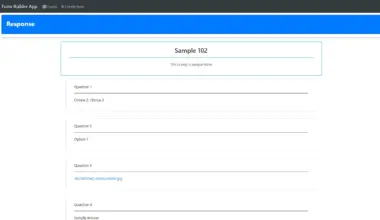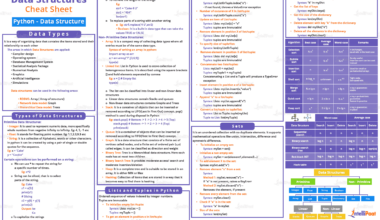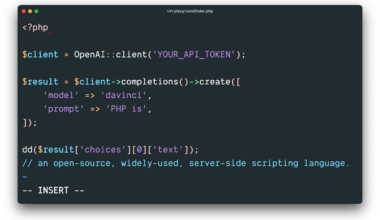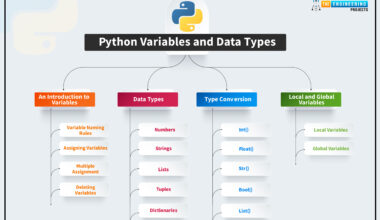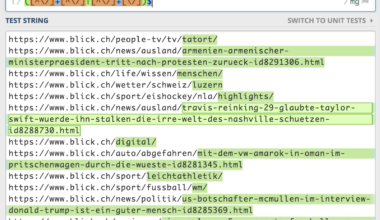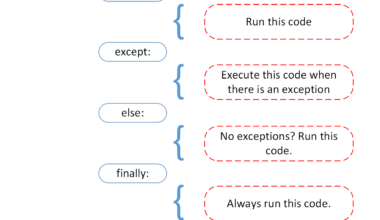Introduction to Python Tuples
As a Python developer, you may have come across the term “tuples.” In Python, tuples are a sequence of immutable objects enclosed within parentheses. In simpler terms, tuples are ordered collections of items that cannot be modified after creation.
Tuples are similar to lists in Python, with the only difference being that tuples are immutable, and lists are mutable. Once a tuple is created, you cannot change its values or add or remove items from it. This unique characteristic makes tuples a valuable tool in Python programming.
To create a tuple, you enclose the objects within parentheses, separated by commas. For example, here is a tuple that contains the names of three fruits:
fruits = ('Apple', 'Banana', 'Kiwi')
You can also create an empty tuple using empty parentheses:
empty_tuple = ()
Although tuples are immutable, they can contain mutable objects like lists. However, the objects within the tuple cannot be changed. For instance, consider the following tuple:
my_tuple = ('John', [25, 36, 40], 'Mary')
Even though the tuple is immutable, the second element is a list, which is mutable. Therefore, you can modify the list within the tuple:
my_tuple[1].append(50) print(my_tuple)
This will output:
('John', [25, 36, 40, 50], 'Mary')
In the next section, we will explore the benefits of using tuples in Python programming.
Benefits of Using Tuples
Tuples have several benefits that make them a valuable tool in Python programming. Some of the key benefits of using tuples are:
1. Faster Execution: Tuples are faster than lists when it comes to execution time since tuples are immutable. As a result, tuples are memory-efficient and can be used in situations where you don’t need to modify the data.
2. Sequence Operations: Tuples support all sequence operations, including indexing, slicing, and looping. You can access elements in a tuple using its index, just like you would with a list. For example:
fruits = ('Apple', 'Banana', 'Kiwi')
print(fruits[0]) # Output: Apple
3. Unpacking: You can unpack a tuple into multiple variables in a single line of code. This feature is useful when you want to assign multiple values to multiple variables. For instance:
fruits = ('Apple', 'Banana', 'Kiwi')
a, b, c = fruits
print(a) # Output: Apple
4. Tuple as Dictionary Key: Since tuples are immutable, they can be used as keys in dictionaries. This is not possible with lists since lists are mutable.
5. Safer Code: Tuples are immutable, meaning you cannot change their values accidentally. This feature makes your code safer since you don’t have to worry about accidentally modifying the data.
6. Function Arguments: Tuples are often used to pass a collection of values to a function. For instance, you can pass multiple arguments to a function using a tuple. Consider the following example:
def multiply(x, y):
return x * y
my_tuple = (3, 4)
print(multiply(*my_tuple)) # Output: 12
In conclusion, tuples are a valuable tool in Python programming due to their immutable properties, faster execution, and sequence operations. They are often used in situations where you don’t need to modify the data, and their safety features make them a reliable option.
Immutable Properties of Tuples
One of the most significant properties of tuples in Python is their immutability. Once a tuple is created, you cannot modify its values. This means that you cannot add or remove items from a tuple, and you cannot change the order of the items. While this may seem limiting at first, this property of tuples offers several advantages.
Firstly, the immutability of tuples makes them more memory-efficient than mutable objects like lists. When you modify a list, Python has to create a new copy of the list in memory, which can be time-consuming and resource-intensive. With tuples, you don’t have to worry about this since the data is fixed.
Secondly, the immutability of tuples makes them safer to use in your code. When you pass a tuple to a function or use it in another part of your program, you can be confident that the data will not change unexpectedly. This makes your code more reliable and easier to debug.
Thirdly, since tuples are immutable, they can be used as keys in dictionaries. This is because the keys of a dictionary must be immutable so that they can be hashed. Since tuples are immutable, they can be used as dictionary keys, whereas lists cannot.
Finally, the immutability of tuples allows you to create constants in your Python code. Constants are values that are fixed and cannot be changed during the execution of your program. By using tuples to create constants, you can make your code more readable and easier to maintain. For example, you could define a tuple of days of the week as follows:
DAYS_OF_WEEK = ('Monday', 'Tuesday', 'Wednesday', 'Thursday', 'Friday', 'Saturday', 'Sunday')
By using a tuple to define the days of the week, you can be sure that the values will not change during the execution of your program.
In conclusion, the immutability of tuples in Python offers several advantages, including improved memory efficiency, safer code, the ability to use tuples as dictionary keys, and the creation of constants. While tuples may seem limiting at first, their immutability makes them a powerful tool in Python programming.
Common Uses of Tuples in Python
Tuples are used in many ways in Python programming due to their unique properties. In this section, we will explore some of the common uses of tuples in Python:
1. Multiple Return Values: Functions in Python can return multiple values using a tuple. For instance, consider the following function that returns the quotient and remainder of two numbers:
def divide(dividend, divisor):
quotient = dividend // divisor
remainder = dividend % divisor
return quotient, remainder
result = divide(10, 3)
print(result) # Output: (3, 1)
Here, the function returns a tuple containing the quotient and remainder as two separate values.
2. Grouping Data: Tuples are often used to group related data together. For example, consider the following tuple that contains information about a person:
person = ('John', 'Doe', 25, 'Male')
Here, the tuple contains the person’s first name, last name, age, and gender. You can access each element of the tuple using its index.
3. Passing Arguments: Tuples can be used to pass a variable number of arguments to a function. For instance, consider the following function that accepts a variable number of arguments:
def add(*numbers):
result = 0
for number in numbers:
result += number
return result
result = add(1, 2, 3, 4, 5)
print(result) # Output: 15
Here, the function accepts any number of arguments and adds them up using a loop.
4. Unchanging Data: Tuples are often used to store data that will not change during the execution of a program. For example, you could use a tuple to store the names of the months of the year:
MONTHS_OF_YEAR = ('January', 'February', 'March', 'April', 'May', 'June', 'July', 'August', 'September', 'October', 'November', 'December')
By using a tuple, you can be sure that the values will not change during the execution of your program.
5. Iterating over Multiple Sequences: Tuples can be used to iterate over multiple sequences in a for loop. For instance, consider the following example:
fruits = ('Apple', 'Banana
Final Thought: Tuples Are a Powerful Tool in Python Programming
In conclusion, tuples are a valuable tool in Python programming due to their unique properties and benefits. Tuples are immutable, which makes them faster and more memory-efficient than mutable objects like lists. They can be used to group related data, return multiple values from functions, pass a variable number of arguments to functions, and create constants. Additionally, tuples are safer to use in your code since their values cannot be changed accidentally.
When working with tuples, it is essential to keep their immutability in mind. Once a tuple is created, you cannot modify its values, add or remove items from it, or change the order of the items. However, you can use tuples to store mutable objects like lists, and modify the objects within the tuple.
In summary, tuples are a powerful tool in Python programming that can help you write more efficient, reliable, and maintainable code. By understanding the benefits and limitations of tuples, you can use them effectively in your Python projects.











